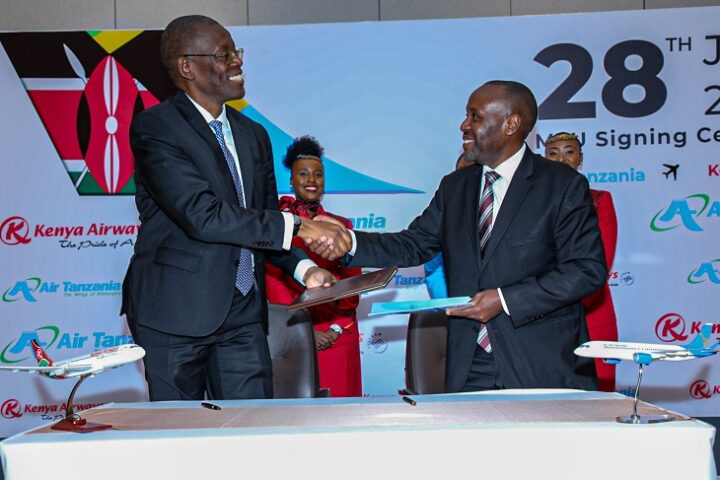In a year where global aviation is still catching its breath, Kenya Airways (KQ) has managed something remarkable; not just returning to profitability, but doing so with a renewed sense of purpose.
Although the national Kenya Airways headlines may deal with the flights, the expansion of the fleet, or the finances of the company, there is a deeper scope of emphasis for consideration, which is the national carrier’s role in pulling Kenya’s economy.
IATA published a study in 2024 assessing Kenya’s economic growth and concluded the aviation sector has a contribution of approximately KES 425 billion, meaning 3.4 percent of the entire economy.
The industry supports an estimated 460,000 jobs, spanning from airline employees and ground staff to hotel workers, cargo handlers, tour guides, and traders. At the center of this ecosystem is Kenya Airways, playing a disproportionately large role in connecting people, opportunities, and livelihoods.
That kind of impact isn’t always visible when you board a flight, but it’s felt in ripple effects across the country, from farmers and freight handlers to airport security teams and service providers.
In 2024, Kenya Airways posted a net profit of KES 5.4 billion, a major turnaround from the KES 22.7 billion loss reported the year before.
More than a bottom-line achievement, this milestone reflects a renewed clarity of purpose and efficiency. The airline flew over 5.23 million passengers last year, connecting Kenya to key African capitals and major global destinations.
And while many think of business travelers and tourists, the reality is more layered. On any given flight, you’ll find a trader heading to West Africa, a student on their way to Europe, and a family reuniting after years apart. Each one does their part as to why Kenya Airways exists.
While most people focus on passengers, cargo has quietly become one of KQ’s most powerful tools for economic growth.
The airline handled over 70,000 tonnes of cargo in 2024, up by 25% from the year before. What was in those shipments? Primarily flowers, fresh food, and live animals, which are some of Kenya’s top export earners.
Every shipment that makes it safely to Europe, the Middle East, or Asia supports entire value chains back home, especially in agriculture, where speed, reliability, and compliance matter.
Behind this large economic footprint is a surprisingly lean operation. Kenya Airways directly employs around 4,700 people. But its impact extends far beyond that number.
The airline’s procurement strategy prioritises local sourcing, with 35% of all procurement spending going to Kenyan suppliers. That means when KQ grows, so do local businesses across everything from catering to logistics to tech support. It’s a platform for homegrown growth.
There’s progress happening on the inclusion front, too. About 44% of KQ’s workforce is made up of women, making it one of the more gender-balanced airlines on the continent. In an industry where leadership still skews male, this kind of shift matters.
KQ is planning for long-term growth. Over the next five years, the company aims to expand its fleet from 34 to 53 aircraft, with a focus on mono-fleeting, modern interiors, and tech upgrades for a smoother customer experience.
At the same time, informal talks are ongoing about bringing in a strategic equity partner to help boost capital and position the airline for scalable, sustainable growth. All this is happening even as the industry wrestles with global supply chain disruptions that have grounded aircraft, delayed new planes, and made operations more complex.
Beyond operations, KQ is thinking green. The airline has started work with partners to develop Sustainable Aviation Fuel (SAF) feedstock locally, particularly along the coast. But with SAF still costing nearly four times more than regular jet fuel, progress depends on policy shifts and global collaboration. The intent is there. The structure is forming. The hope is that Kenya could one day become an SAF leader in Africa.
In the noise of financial results, flight delays, and aircraft upgrades, it’s easy to overlook what Kenya Airways is: a national economic enabler that carries more than just passengers. The airline carries potential whose success reaches into all the corners of the country’s economy.
As we look ahead, we need to start thinking of Kenya Airways as a national asset and start investing in its growth, championing its reforms, and supporting its sustainability goals.
Related Content: Kenya Airways, Air Tanzania Ink Partnership Deal: What The MOU Covers













